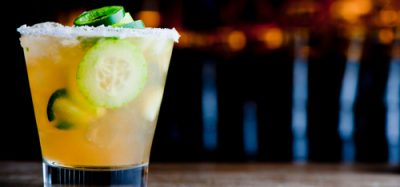Scotland gets tough over food crime
- Like
- Digg
- Del
- Tumblr
- VKontakte
- Buffer
- Love This
- Odnoklassniki
- Meneame
- Blogger
- Amazon
- Yahoo Mail
- Gmail
- AOL
- Newsvine
- HackerNews
- Evernote
- MySpace
- Mail.ru
- Viadeo
- Line
- Comments
- Yummly
- SMS
- Viber
- Telegram
- Subscribe
- Skype
- Facebook Messenger
- Kakao
- LiveJournal
- Yammer
- Edgar
- Fintel
- Mix
- Instapaper
- Copy Link
Posted: 12 September 2018 | Ron McNaughton | No comments yet
Launched back in 2015, the SFCIU has already had some notable successes in the challenge of combating food fraud, as the unit’s head Ron McNaughton explains.


It’s estimated that food crime costs the UK food and drink industry over £1 billion each year – and yet there is very little public awareness about it. It has many consequences, from the obvious risk to public health, through to defrauding the public and honest food businesses. We also need to be very clear that the vast majority of food businesses produce safe, high-quality food but, should a food business produce food dishonestly, it could be harmful to the reputation of the sector.
In 2015, Food Standards Scotland launched the Scottish Food Crime and Incidents Unit (SFCIU) to gather vital intelligence to target those involved in food-related criminal activities. Food crime can be anything from the deliberate manipulation, substitution or mislabelling of food to instances of food fraud where cheaper goods and ingredients are marketed and sold as more expensive ones. It’s a serious threat to the excellent reputation of the Scottish food and drink sector and we know it can be hard for people to come forward. That’s why we’ve partnered with Crimestoppers to help the industry report any concerns of wrongdoing through a dedicated, free and totally confidential hotline number – 0800 028 7926 – and online web form.
The risks from food crime can damage not only the health and finances of people in Scotland but also the reputations and livelihoods of honest food businesses
Ultimately, consumers have the right to know where their food and drink comes from and that it is safe. As a nation we are lucky to enjoy an internationally-renowned reputation for our food and drink, boasting everything from supreme Scottish salmon and venison to the highest quality Scotch Whisky and gin. With ambitious plans to double the value of Scotland’s food and drink industry by 2030, it’s more important than ever for us to work collaboratively with cross-sector partners to tackle food fraud to protect the industry’s well-deserved reputation.
Food producers, no matter who they are or where they work, have a responsibility to ensure their products are authentic – in other words, that they contain what it says on the label. However, industry also has the chance to maintain the integrity of Scottish food and drink by reporting suspicious activity.
Two recent examples highlight the importance of this.
The director of Sea-Pac Ltd, a salmon processing company based in Aberdeen, recently pleaded guilty to a range of food fraud and law offences. This represented the culmination of a four-year investigation by Aberdeen City Council, which uncovered large-scale food fraud. This sort of activity threatens the excellent reputation of the Scottish food and drink sector, and we at Food Standards Scotland will not tolerate abuse of the system. The work Aberdeen City Council did to bring about justice was vital. It’s important to say that this type of fraudulent activity is not representative of the salmon industry in Scotland. The SFCIU has been set up to detect and investigate this sort of wholly unacceptable activity and we will continue to work to support local authorities throughout these types of investigations.
Ultimately we act in our capacity as food industry ‘protectors’ to safeguard the public. The case involving Hebridean Sea Salt in 2017 brought the issue of food crime to the forefront of the public consciousness. Investigations by Western Isles Council and supported by our Scottish Food Crime & Incidents Unit discovered that over 80 percent of the salt found in Hebridean Sea Salt did not originate in the Hebrides, and was in fact imported table salt. While this was not a food-safety issue, this case represents the deception of consumers on a scale that is unacceptable.
We work across the aquaculture, meat, dairy and farming sectors; cross-industry support to help us tackle food crime continues to be crucially important for us. We work closely with Police Scotland, the 32 local authorities, the Scottish Government as well as numerous industry partners who, in turn, support our work in reporting and tackling food crime. We are also the first organisation to sign a collaborative agreement with the Food Industry Intelligence Network (FIIN). This agreement will help us to work in partnership with the food industry to tackle food fraud and meet our strategic aims that food is safe, is what it says it is and ensure that responsible food businesses flourish.
The gross value added to the economy in Scotland from food and drink is approximately £3.8 billion, according to the Food and Drink Federation Scotland. We’re famous the world over for our produce and have built a strong reputation for quality and provenance. These are at risk of being severely compromised by the actions of a minority of individuals and businesses engaging in fraudulent activity.
The risks from food crime can damage not only the health and finances of people in Scotland but also the reputations and livelihoods of honest food businesses. It is worth remembering, however, that the vast majority of people in the food and feed sector continue to deliver high standards, day in, day out, because it is their livelihood.
We are also exploring the new technologies available to keep us ahead of potential fraudsters who might think about profiteering and damaging our well-deserved reputation for food and drink. We are currently looking at stable isotope techniques which can determine the geographical origin of beef sold at processing, retail and catering establishments in Scotland. This work will support investigations and surveillance activities to protect the public from food fraud relating to the origin of beef.
As we make progress we must continue to look to the future and how we can reinforce our message that there is zero tolerance for this activity in Scotland. We must also continue to recruit more industry partners and promote the ways in which they can raise concerns or report behaviour.
About the author
Ron McNaughton is the Head of the Scottish Food Crime & Incidents Unit at Food Standards Scotland.
Issue
Related topics
Related organisations
Aberdeen City Council, Crimestoppers, Food and Drink Federation (FDF), Food Industry Intelligence Network (FIIN), Food Standards Scotland (FSS), Sea-Pac Ltd, SFCIU









